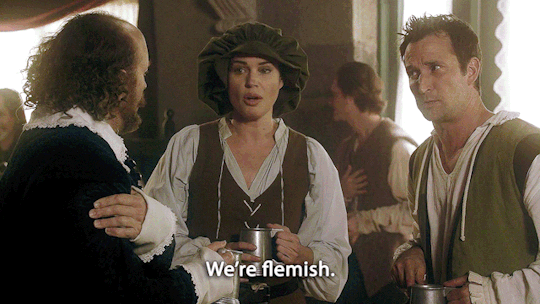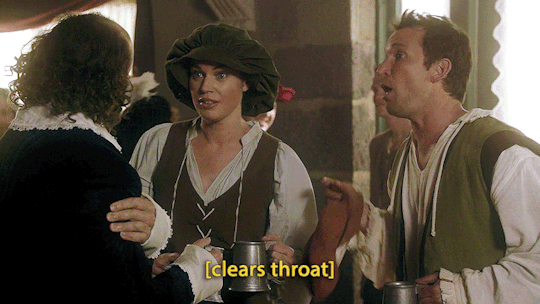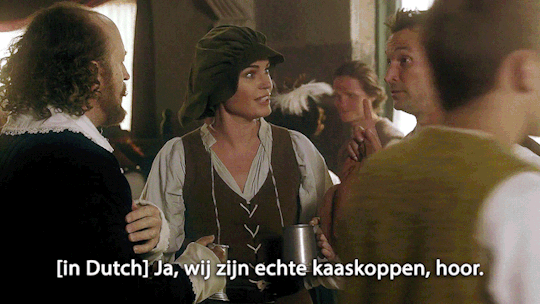#don't ask me what the transcript had for that Dutch part
Explore tagged Tumblr posts
Text
What Charles Would Do To Micah
I sent @noshirdalal the following question on Cameo: "Since Charles was denied the chance to flatten Micah's face in the Epilogue, I would love to see him roast the hell out of the rat. Be as mean as you would like. (All in good fun, Micah is my favorite villain and I love Peter too.) Happy holidays!"
This was his response (transcript below the video.) Y'ALL. I was not ready for how amazing this was. Rather than roast Micah, he opted to burn him to a crisp and scatter the ashes. Very cathartic. It is very, very lucky for Micah that Charles wasn't up there on the summit beside John, because neither Micah nor Dutch would've even been able to open their mouths before it was just over.
PERFECT. Poignant. Believable as hell. As much as Charles cautions John against seeking vengeance on Micah, I don't think he'd reserve any of that same caution for himself. I think, like Sadie and Arthur, he considers himself more ghost than man. In another universe (where John didn't have to make a decision that would lead the Pinkertons to kidnap his family in RDR1) I can definitely see Charles and/or Sadie striking out on their own to take down Micah. John had more to lose, and Charles wouldn't (and didn't) want him risking himself when Arthur's dying wish had been to keep John and his family safe.
Thank you as always, Noshir. Your takes on these questions always exceed anything I'd imagined!
Transcript:
Zana, hey. You always ask interesting questions. "Since Charles never got to beat the crap out of Micah in the Epilogue, how would he roast him?"
I'll always be honest with you guys, so I think, uh... I'll just be as honest as I can be. If at any point in the Epilogue Charles encountered Micah, there would be no roast. There'd be no jokes, there'd be no games. He killed my best friend, and broke apart the only family I've ever had. And maybe that would've happened with or without his push, but he was definitely a big part of it.
I would hunt him. If he tried to go to ground, I would give him no ground to go to. If you're a friend of Micah's and you come to his aid, you are a dead man. If you have family, then at some point you walk off into the woods and disappear and your family never sees you again. But if you're a snake like Micah, well then the... The local sawbones probably rates that they died of fright, or from asphyxiation from the rat feces shoved in their mouths.
It would become known that Micah is hexed, that anyone near him for any period of time comes to a horrible end. And I would keep this up for a long time, until he has absolutely no one. And I would slowly guide him away from civilization and into the wilds.
I would liberate his horse, and then from there on in, he would never get a peaceful night's rest. His fires would always go out in the middle of the night. His food would spoil. He'd hear people at the edge of the campfire but find no one. And I would keep that up until he really started to break.
And then, I'd make myself known, carrying nothing but my bow, arrows, and my hatchet, and we'd play a game of cat and mouse, until he expends all his ammo. And then I would close on him, subdue him, but try not to hurt him. And I would take an arrow and push it between his ribs, and puncture his lung.
And then I would let him go. And I'd give him bullets. I want him to run, and gasp, and drown on dry land, like my friend. And then I'd watch him waste his rounds trying to keep the wolves away, and let them tear him to pieces. And I'd let him see me watch.
That's what I would do to Micah Bell.
159 notes
·
View notes
Photo






someone really wants him to be flemish (plot twist, it’s me in that writers room)
#byyashrin#thelibrariansedit#leverage redemption#The Librarians#noah wyle#leverageredemptionedit#leverageedit#flynn carsen#Eve Baird#harry wilson#Rebecca Romijn#and the final curtain#the belly of the beast job#to id#don't ask me what the transcript had for that Dutch part#but i also need everyone to know#that's not Flemish she's speaking that's dutch Dutch
361 notes
·
View notes